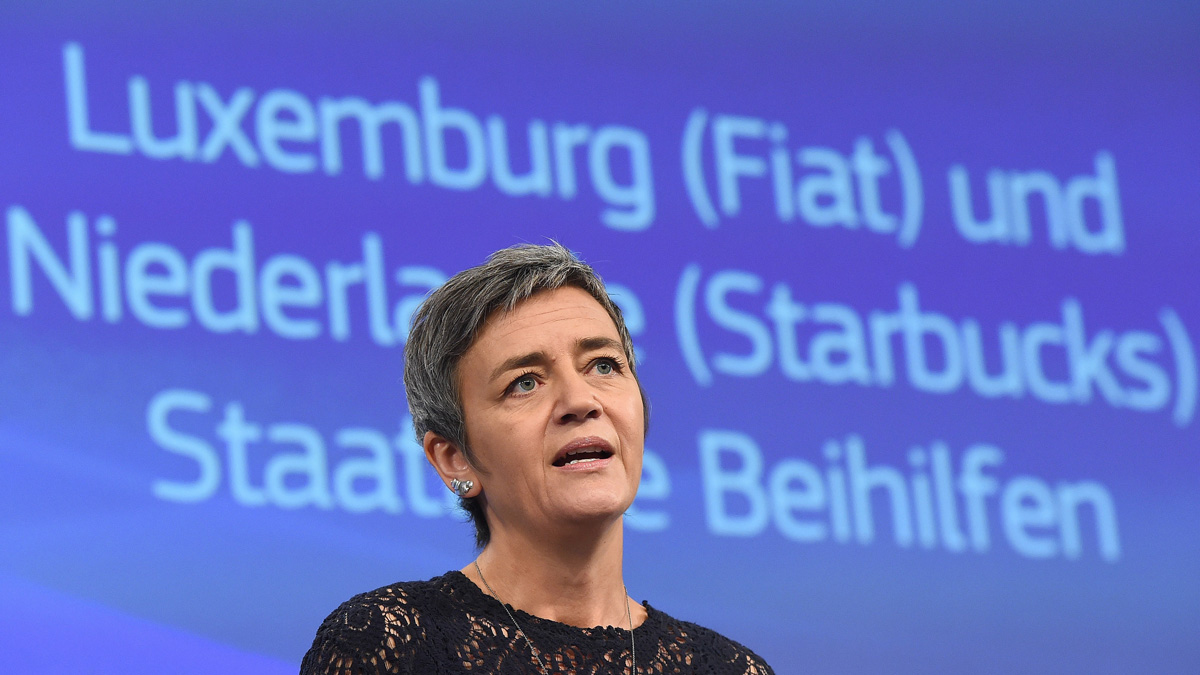Starbucks and Fiat tax ruling is 'tip of the iceberg'
Luxembourg and Netherlands will have to collect more tax, but could lose overseas investment

A free daily email with the biggest news stories of the day – and the best features from TheWeek.com
You are now subscribed
Your newsletter sign-up was successful
Starbucks and Fiat are to be hit with a tax bill of tens of millions of euros, after a European Commission investigation ruled their so-called "sweetheart" deals with Luxembourg and the Netherlands are unlawful.
The companies and governments have publicly disagreed with the decision, while campaigners have alleged their cases represent the "tip of the iceberg" on corporate tax avoidance. So what do today's decisions mean?
What has happened?
The Week
Escape your echo chamber. Get the facts behind the news, plus analysis from multiple perspectives.

Sign up for The Week's Free Newsletters
From our morning news briefing to a weekly Good News Newsletter, get the best of The Week delivered directly to your inbox.
From our morning news briefing to a weekly Good News Newsletter, get the best of The Week delivered directly to your inbox.
The Commission has said the complex tax arrangements that were sealed with "comfort letters" from the two governments breach state aid rules. This effectively means the countries are forfeiting taxes to attract inward investment, in what amounts to an unlawful subsidy.
What were the deals?
In short, the BBC says [1] "transfer pricing arrangements" between subsidiaries lets Starbucks shift profits abroad and Fiat pay taxes on "underestimated profits".
In practice, this means Starbucks pays excessive sums for brand licencing to its Netherlands arm, effectively reducing taxable profits in higher-tax countries like the UK and channelling the money into a country where it pays an ultra-low tax rate. The Guardian notes similar arrangements using intra-group loans allowed Fiat to artificially reduce tax on income generated across the continent.
A free daily email with the biggest news stories of the day – and the best features from TheWeek.com
How much money is at stake?
Both companies will have to repay tax of up to €30m to the Luxembourg and Netherlands governments. But across all companies using such deals, "billions of euros" not being paid in various countries, the Financial Times says.
Why would these countries want to reduce their tax take?
Because it attracts multinational companies looking to simplify – and in reality reduce – their global tax bill, creating jobs and boosting the wider economy. It is questionable how many companies would choose to base themselves in the Duchy of Luxembourg were it not for favourable tax deals, for example.
Will this ruling mean the UK gets more in tax?
Not initially. The Luxembourg and Netherlands governments are being asked to collect the taxes – effectively to recover the state aid they are ruled to have given. But it is likely that this ruling, if applied more widely and coupled with changes coming under a new global tax accord, could see more revenues banked in countries where the sales were made.
This would eventually come to benefit the UK as well as others.
Is this the end of the matter?
Not by a long shot. Starbucks has already vowed to challenge the ruling in the courts. It is helped by the fact that the countries in question will support its claim.
And there are already other deals under the microscope. Amazon and Apple's deals in Luxembourg and Ireland are being reviewed and could result in similar rulings. Reuters reports that the competition commissioner behind the clampdown, Margrethe Vestager, has warned these are " very different cases" that will be "assessed on their own merit".
-
 Tourangelle-style pork with prunes recipe
Tourangelle-style pork with prunes recipeThe Week Recommends This traditional, rustic dish is a French classic
-
 The Epstein files: glimpses of a deeply disturbing world
The Epstein files: glimpses of a deeply disturbing worldIn the Spotlight Trove of released documents paint a picture of depravity and privilege in which men hold the cards, and women are powerless or peripheral
-
 Jeff Bezos: cutting the legs off The Washington Post
Jeff Bezos: cutting the legs off The Washington PostIn the Spotlight A stalwart of American journalism is a shadow of itself after swingeing cuts by its billionaire owner